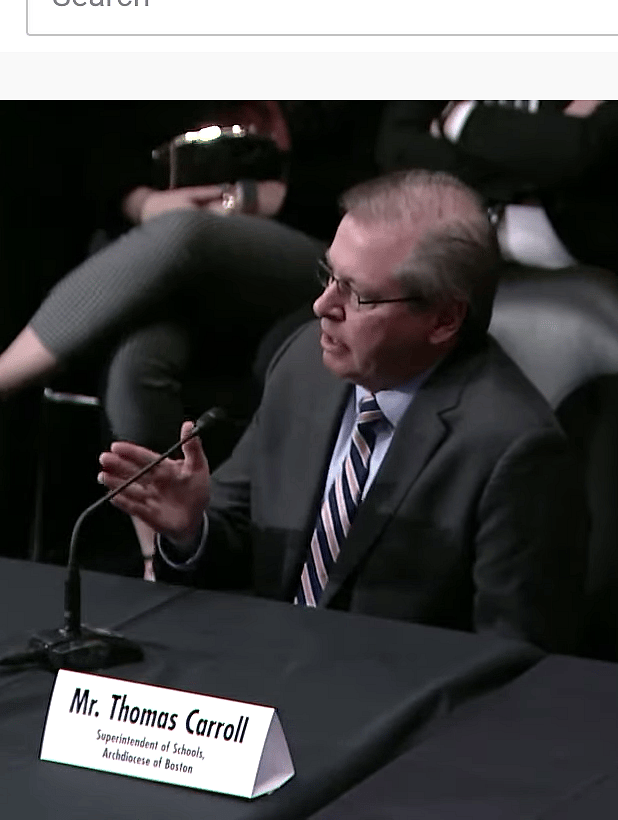Transcript of Remarks of Thomas Carroll, Archdiocese of Boston Superintendent of Schools, During GOP Roundtable on Biden Stimulus Bill

Editor's Note: Thomas Carroll, superintendent of schools for the Roman Catholic Archdiocese of Boston, appeared Wednesday, December 1, 2021 before a roundtable convened by Republicans in the United States Senate in Washington D.C. to discuss an aspect of President Joe Biden's proposed federal stimulus bill, called the Build Back Better Act.
Some religious school officials say that the bill as written would likely force them to withdraw from providing child care and prekindergarten education, because getting access to federal funds would require them to go against their religious beliefs. As currently written, the bill requires that providers receiving federal funds comply with federal non-discrimination rules (known as Title IX of the Educational Amendments of 1972), which prohibit discrimination on the basis of sex, and include sexual orientation and gender identity in the official definition of sex.

